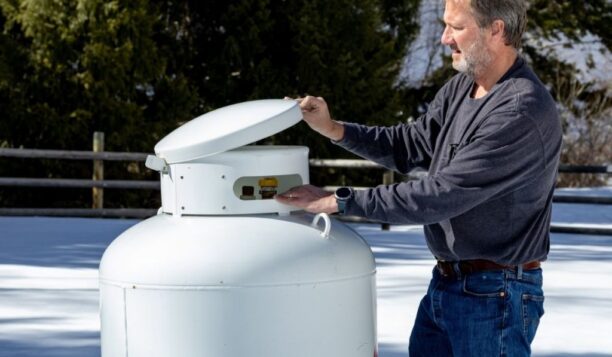Propane Delivery Safety Through Customer Education

Customer Education: Enhancing Safety and Trust in Propane Delivery
Propane is a versatile and efficient energy source in various applications, including heating, cooking, and powering vehicles. While propane offers numerous benefits, it’s essential to prioritize safety in order to prevent accidents and build trust with customers. Let’s explore the significance of customer education in enhancing security and trust in propane delivery.
Why Customer Education Matters
1. Understanding Propane: Many customers may need help fully grasping the properties of propane. Customer education can provide essential knowledge about propane’s characteristics, including its flammability, odor, and safe handling practices.
2. Safe Usage Guidelines: Educating customers on safe propane usage is paramount. This includes proper storage, leak detection, and how to respond in case of a leak or emergency. Informed customers are less likely to engage in risky behaviors.
3. Appliance Safety: Propane fuels various appliances, and educating customers on the safe use of propane-powered devices is essential. This knowledge reduces the risk of accidents associated with these appliances.
4. Early Issue Recognition: Customer education empowers individuals to recognize signs of potential propane-related problems, such as unusual odors, hissing sounds, or equipment malfunctions. Early detection can go a long way toward preventing accidents.
Building Trust Through Education
1. Transparency: Providing customers with comprehensive information about propane and its safe usage demonstrates transparency. This fosters trust and reassures customers that their safety is a top priority.
2. Regulatory Compliance: Educated customers are more likely to adhere to safety regulations, ensuring that propane installations and equipment meet safety standards. This reduces compliance-related concerns.
3. Emergency Preparedness: When customers are educated about emergency procedures and know how to respond to propane-related incidents, they feel more confident handling unforeseen situations. This preparedness contributes to trust.
4. Dispelling Misconceptions: Misconceptions about propane can lead to unwarranted fear or distrust. Education dispels these myths and equips customers with accurate information, reducing anxiety.
Effective Methods of Customer Education
1. Online Resources: Develop informative websites, videos, and downloadable materials that customers can access conveniently. These resources should cover safety guidelines, frequently asked questions, and emergency procedures.
2. In-Person Workshops: Offer workshops or training sessions for customers interested in propane safety. These can be conducted at local community centers or libraries.
3. Accessible Customer Support: Ensure your customer support team is knowledgeable and capable of promptly addressing safety-related questions. Encourage customers to reach out with any concerns.
4. Informative Bill Inserts: Include safety tips and reminders in monthly bills to keep safety at the forefront of customers’ minds. These can be in the form of brochures or refrigerator magnets.
Customer education is key to enhancing safety and trust in propane delivery. By providing customers with the knowledge and resources they need to use propane safely, propane providers reduce the risk of accidents and foster a loyal customer base. Prioritizing customer education is a definite win-win for both safety and business success in the propane industry.
















